Drug firms too burdened by crises, says WHO
by Andrew Ward,
2016-03-10 05:00:00.0
PHARMACEUTICAL companies cannot be expected to keep picking up the bill for tackling global pandemics, the head of the World Health Organisation (WHO) warns, urging the creation of a new funding mechanism for emergency drugs and vaccines.
WHO director-general Margaret Chan says the pharmaceutical industry had spent almost $1bn developing Ebola vaccines in the past two years, without any return on investment.
"The question we need to ask, is can we continuously tax the industry like this? Yes, maybe once, but not every time," she says
Merck & Company, GlaxoSmithKline and Johnson & Johnson bore the heaviest costs during the Ebola crisis, when they rushed vaccines through trials in record time.
Dr Chan says the firms are again being asked to divert research and development resources in response to the Zika outbreak in Latin America — even before the Ebola epidemic is officially declared over in West Africa.
"That is too often. We need a funding mechanism in place, allowing countries and industry to prepare for high-impact events," she says.
HER comments are likely to raise eyebrows among critics of big pharmaceutical companies, given that spending on the Ebola and Zika crises amounts to a small fraction of industry profits.
However, there is a growing consensus among policy makers over the need to build contingency funds for future health emergencies.
An independent commission led by the US National Academy of Medicine in January proposed an annual international fund of $4.5bn to prepare for pandemics.
Dr Chan says the Zika outbreak — and the surge of birth defects assumed to be linked to the mosquito-borne virus — would "get worse before it gets better", but she defends Brazil’s handling of the health emergency.
Zika has added to the problems besieging Brazil’s President Dilma Rousseff as she faces impeachment hearings and the worst recession in decades, and critics have questioned whether her government has responded quickly enough.
Dr Chan says Brazil had raised the alarm as soon as Zika became prevalent last year, but there was a natural lag of several months before the full extent of the crisis was revealed by the surge of birth defects. Since then, the government has been "very responsive", she adds.
Researchers are still trying to prove a link between Zika and microcephaly, the normally rare brain-shrinking disorder reported or suspected in about 4,800 infants in Brazil alone since October, but Dr Chan says evidence is growing.
"I’m worried about the stress on parents and the long-term care of these children," she says.
Zika has brought an early test of whether the WHO has learnt lessons from its widely criticised handling of the Ebola outbreak.
DR CHAN was quick to officially declare Zika a global emergency in February and convene an international panel of experts to help co-ordinate the response.
She accepts that the WHO was slow off the mark when Ebola erupted in Guinea, Liberia and Sierra Leone in 2014 — a failing she attributes to poor communications and surveillance in a region ravaged by recent wars.
Dr Chan says Ebola and Zika should serve as a wake-up call over the resurgent threat posed by infectious diseases — including drug-resistant "superbugs".
"In the 19th and 20th centuries, we overcame a lot of contractible diseases," she says. "In the 21st century, the pathogens are saying, ‘Watch out! Here we come again’."
The discovery in China last year of bacteria resistant to colistin, a last-resort antibiotic used to treat several life-threatening infections, was a "shocking" warning that the world is "running out of antibiotics", Dr Chang says.
She is pleased that British Prime Minister David Cameron plans to push for global action to tackle antimicrobial resistance through the United Nations and the Group of 7 after a two-year UK-led review of the issue.
Medicine risks "going back to the dark ages" without action to spur development of new antibiotics and preserve those that remain effective, she says.
(c) Financial Times Limited 2016
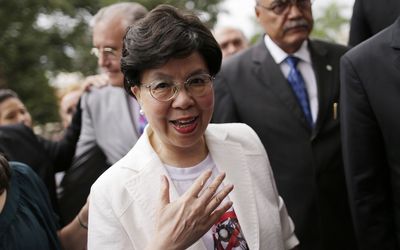
Margaret Chan. Picture: REUTERS/UESLEI MARCELINO
PHARMACEUTICAL companies cannot be expected to keep picking up the bill for tackling global pandemics, the head of the World Health Organisation (WHO) warns, urging the creation of a new funding mechanism for emergency drugs and vaccines.
WHO director-general Margaret Chan says the pharmaceutical industry had spent almost $1bn developing Ebola vaccines in the past two years, without any return on investment.
"The question we need to ask, is can we continuously tax the industry like this? Yes, maybe once, but not every time," she says
Merck & Company, GlaxoSmithKline and Johnson & Johnson bore the heaviest costs during the Ebola crisis, when they rushed vaccines through trials in record time.
Dr Chan says the firms are again being asked to divert research and development resources in response to the Zika outbreak in Latin America — even before the Ebola epidemic is officially declared over in West Africa.
"That is too often. We need a funding mechanism in place, allowing countries and industry to prepare for high-impact events," she says.
HER comments are likely to raise eyebrows among critics of big pharmaceutical companies, given that spending on the Ebola and Zika crises amounts to a small fraction of industry profits.
However, there is a growing consensus among policy makers over the need to build contingency funds for future health emergencies.
An independent commission led by the US National Academy of Medicine in January proposed an annual international fund of $4.5bn to prepare for pandemics.
Dr Chan says the Zika outbreak — and the surge of birth defects assumed to be linked to the mosquito-borne virus — would "get worse before it gets better", but she defends Brazil’s handling of the health emergency.
Zika has added to the problems besieging Brazil’s President Dilma Rousseff as she faces impeachment hearings and the worst recession in decades, and critics have questioned whether her government has responded quickly enough.
Dr Chan says Brazil had raised the alarm as soon as Zika became prevalent last year, but there was a natural lag of several months before the full extent of the crisis was revealed by the surge of birth defects. Since then, the government has been "very responsive", she adds.
Researchers are still trying to prove a link between Zika and microcephaly, the normally rare brain-shrinking disorder reported or suspected in about 4,800 infants in Brazil alone since October, but Dr Chan says evidence is growing.
"I’m worried about the stress on parents and the long-term care of these children," she says.
Zika has brought an early test of whether the WHO has learnt lessons from its widely criticised handling of the Ebola outbreak.
DR CHAN was quick to officially declare Zika a global emergency in February and convene an international panel of experts to help co-ordinate the response.
She accepts that the WHO was slow off the mark when Ebola erupted in Guinea, Liberia and Sierra Leone in 2014 — a failing she attributes to poor communications and surveillance in a region ravaged by recent wars.
Dr Chan says Ebola and Zika should serve as a wake-up call over the resurgent threat posed by infectious diseases — including drug-resistant "superbugs".
"In the 19th and 20th centuries, we overcame a lot of contractible diseases," she says. "In the 21st century, the pathogens are saying, ‘Watch out! Here we come again’."
The discovery in China last year of bacteria resistant to colistin, a last-resort antibiotic used to treat several life-threatening infections, was a "shocking" warning that the world is "running out of antibiotics", Dr Chang says.
She is pleased that British Prime Minister David Cameron plans to push for global action to tackle antimicrobial resistance through the United Nations and the Group of 7 after a two-year UK-led review of the issue.
Medicine risks "going back to the dark ages" without action to spur development of new antibiotics and preserve those that remain effective, she says.
(c) Financial Times Limited 2016


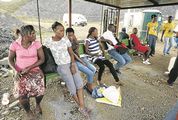

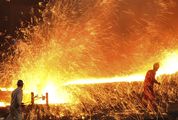
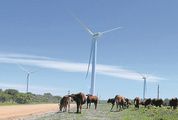



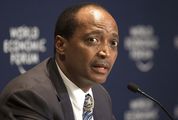









Change: -0.32%
Change: -0.38%
Change: -1.59%
Change: -0.32%
Change: 0.63%
Data supplied by Profile Data
Change: 1.71%
Change: -0.03%
Change: -0.32%
Change: 0.00%
Change: 0.02%
Data supplied by Profile Data
Change: -1.32%
Change: -1.11%
Change: -1.85%
Change: -1.77%
Change: -0.46%
Data supplied by Profile Data
Change: -0.79%
Change: -0.51%
Change: -0.32%
Change: -0.18%
Change: 1.34%
Data supplied by Profile Data